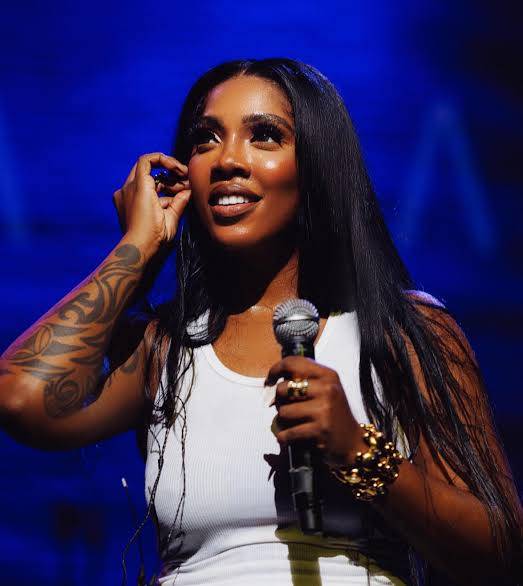
AY’s Blistering Outburst: “Without Osimhen, There Is No Super Eagles” — Comedian’s Fierce Rebuke After Nigeria’s World Cup Failure
The waves of disappointment that swept across Nigeria after the Super Eagles failed to qualify for the World Cup have continued to stir heated reactions, but none has hit as sharply as the scathing criticism from popular comedian and filmmaker Ayo Makun, famously known as AY. In a moment that
The waves of disappointment that swept across Nigeria after the Super Eagles failed to qualify for the World Cup have continued to stir heated reactions, but none has hit as sharply as the scathing criticism from popular comedian and filmmaker Ayo Makun, famously known as AY. In a moment that captured the collective frustration of millions of football-loving Nigerians, AY declared that the team’s failure was not just disappointing, but “a shame, a big shame,” insisting that the Super Eagles have proven they are nothing without their star striker, Victor Osimhen.
AY’s outburst came shortly after Nigeria’s dismal performance sealed their fate and ended the nation’s hopes of featuring in the world’s biggest football tournament. Social media erupted with rage, heartbreak, and disbelief, but AY’s words stood out like a bold headline. “It’s a shame, a big shame,” he wrote. “You’ve proven to us that without Osimhen, there is no Super Eagles.” His statement immediately ignited a fresh round of debate about the team’s competence, strategy, and long-standing dependence on individual brilliance rather than cohesive performance.
For many Nigerians, the failure hit deeper than the loss of a football match — it was the crushing of hope, the breaking of a tradition, and the embarrassment of missing out on the global stage where the country once roared with pride. The Super Eagles, historically known for their flair, power, and passion, have now become a source of incessant heartbreak, and AY’s words echoed what many fans had whispered in frustration: the team has become frighteningly reliant on Osimhen, a player whose absence now seemingly determines the fate of an entire nation.
Osimhen, who has been nursing injuries and battling inconsistent availability, has long been the team’s most lethal weapon. His energy, pace, and finishing ability often bail the team out of difficult matches. But AY’s criticism goes beyond one man — it speaks to a lack of depth, a poor football structure, and a worrying inability of the Super Eagles to function as a collective unit. His statement resonated with millions who believe that the Nigerian Football Federation has failed to build a squad strong enough to withstand the absence of any single player.
In football, no team should crumble because one star is unavailable, yet that seems to have been the case for Nigeria time and again. AY’s comment reignited national conversations about leadership lapses, poor coaching decisions, and the alleged internal disorganization that has plagued the squad for years. Many fans argue that despite possessing talented players scattered across Europe, the Super Eagles continue to underperform, suggesting deeper issues beyond what can be seen on the pitch.
As the dust settles, analysts are now examining the larger implications of this disappointment. Nigeria, a country with a proud football history and a passionate fan base, has missed out on the biggest sporting festival in the world. The economic ripple effects — from tourism to merchandising and national visibility — are not lost on observers. A World Cup appearance brings excitement, unity, and global recognition, and missing out on it feels like a national tragedy.
AY’s critique also brought attention to the mental and emotional burden carried by Nigerian fans. Football is more than just a sport in Nigeria; it is a unifying force, a source of joy, and an escape from daily struggles. When the Super Eagles fail, it feels as though the entire nation has been let down. The comedian’s words captured that exact sentiment — a mix of anger, hurt, and disbelief layered with a cry for accountability.
The backlash that followed AY’s comments was swift but divided. Some fans praised him for boldly saying what many influential figures were too cautious to express publicly. They argued that the team needed tough love and honest criticism to jolt them out of their complacency. Others, however, accused AY of being too harsh, insisting that while the team underperformed, public figures should uplift rather than discourage the players during difficult moments.
Still, the comedian’s message highlights a broader societal frustration — Nigerians are tired of excuses, repeated failures, and predictable heartbreaks. From the administrative inefficiencies to questionable tactical decisions, the team’s struggles now symbolize a national pattern: great potential repeatedly undermined by poor planning.
Meanwhile, Victor Osimhen, the player at the center of the storm, has not issued any direct response to the drama surrounding the team’s failure. But his influence — or the lack of it — has sparked serious reflection within Nigeria’s football community. How did the Super Eagles, once feared across Africa, become a side that collapses without one striker? What does this say about the development of local players and the long-neglected youth systems? And most importantly, what must be done to rebuild a truly competitive national team?
In the days following the announcement of Nigeria’s failed qualification, stories of internal disagreements, tactical confusion, and leadership issues within the team surfaced online. While some of these claims remain unverified, they feed into a familiar narrative — one that Nigerians have grown weary of: an elite squad full of stars but lacking unity, direction, and identity.
Football experts urge that this painful moment should become a turning point. They warn that blaming one missing player, no matter how talented, only distracts from the systemic failures that need urgent solutions. The Super Eagles must evolve, diversify their attack, strengthen their midfield creativity, and build a defensive structure that can withstand pressure even in the worst situations.
But for now, the emotions remain raw. Social media timelines are flooded with memes, criticisms, and lamentations. Every Nigerian, from celebrities to everyday fans, seems to have an opinion about what went wrong. And AY’s fiery rebuke has become one of the defining reactions to this national disappointment — a blunt, unfiltered expression of the frustration millions feel.
As Nigeria braces for the upcoming football calendar and contemplates the long road ahead, one thing is clear: the people demand better. The Super Eagles cannot continue to rely on one player to carry the hopes of an entire nation. They must rediscover their identity, rebuild their confidence, and prove to fans — and to critics like AY — that they are more than the absence of Victor Osimhen.
Until then, the comedian’s harsh words will continue to echo in the hearts of Nigerians who watched their World Cup dreams crumble once again: “It’s a shame, a big shame. Without Osimhen, there is no Super Eagles.”
Share this post
Related Posts

Valentine’s Day Sparks Relationship Debate After Fiery Exchange Goes Viral
Social media was recently set abuzz after a seemingly innocent question about Valentine’s Day plans...

Tiwa Savage Shocks Fans: Reveals Nearly Three Years of Celibacy, No Sex Toys, and New Focus on Family
Tiwa Savage, the queen of Afrobeats and one of Nigeria’s most celebrated singers, has left...

Viral Food Influencer “FoodWithBearHands” Shot Dead by Texas Deputy During Traffic Stop
Michael Duarte, a California-based food creator celebrated online as “FoodWithBearHands,” was fatally shot by a...